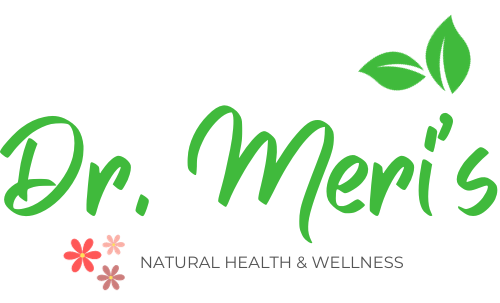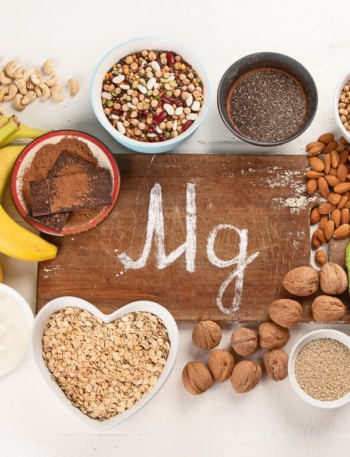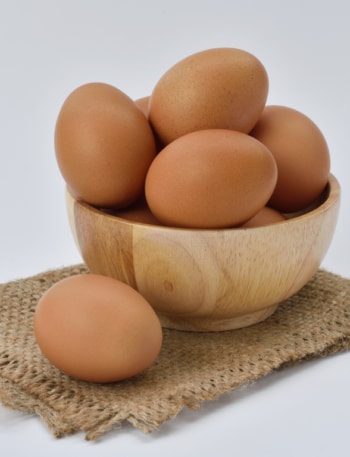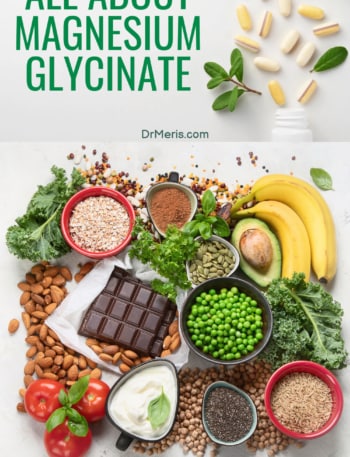Overview
Definition
The term “common cold” refers to a mild upper viral respiratory infection that affects the nose, sinuses, pharynx, and larynx. This type of infection can be viral or mixed.1
Causes
Pathogens such as rhinoviruses, respiratory syncytial viruses, influenza viruses, parainfluenza viruses, coronaviruses, and adenoviruses are among those that can induce symptoms of the common cold.2 COVID-19 is the disease caused by the SARS-CoV-2 coronavirus.
About 0.5 to 2% of viral upper respiratory tract infections are complicated by bacterial infections.3
Symptoms
The severity and type of symptoms vary depending on the immune status of the patient and the pathogen causing the infection. Symptoms include:
- Nausea
- Sore or scratchy throat
- Sneezing
- Fever
- Feeling tired
- Nasal stuffiness
- Runny nose
- Upset stomach
- Body aches
- Headache
- Coughing
Allergic rhinitis, called hay fever, is an allergic reaction that causes sneezing, congestion, an itchy nose, and watery eyes.
What is the difference between the common cold and COVID-19?
You cannot tell the difference between flu, COVID-19, and other viral respiratory infections by the symptoms alone because they have many common signs and symptoms. Because COVID-19 cannot be identified with certainty based on symptoms alone, a test may be recommended. This is especially true if you have had any interaction with someone who has been diagnosed with the coronavirus.
Prevention
- Keep your distance from people who have respiratory sickness symptoms.
- Wash your hands frequently.
- Avoid sharing personal items.
- Keep your house clean and ventilate regularly.
- If you are sick and need to sneeze and cough frequently, keep your distance from others.
Cold prevention may include taking zinc supplements, vitamin D, or echinacea preparations. Some people start using these products several weeks before the cold season begins.
Treatment
Drugs can only provide temporary relief from symptoms. Because viruses cause colds, antibiotic treatment is unnecessary. Antibiotics are only effective against bacteria.4,5
The recommended treatment (allopathy) is primarily symptomatic:1
- A combination of paracetamol, nonsteroidal anti-inflammatory drugs—NSAIDs (reduce fever and soreness of the throat, and may also have some benefit on cough)
- Second-generation antihistamines with a short-term benefit in reducing symptoms the first 2 days (reduce sneezing and rhinorrhea),
- Ipratropium bromide (reduce rhinorrhea).
- Nasal decongestants with a small effect in adults (reduce nasal blockage),
Natural remedies
Herbs and supplements
Cold treatment is mostly based on plant-derived chemicals such as polyphenols, flavonoids, saponins, and alkaloids.6
Several medicinal plants are often used as remedies to ease the symptoms of upper respiratory infections, such as coughing, fever, and nasal clearing.
People are increasingly turning to these items for relief from cold symptoms. However, the scientific evidence is conflicting. Here’s what we know so far.
Echinacea
A clinical trial has shown that giving Echinaforce Junior pills to healthy children had an outstanding safety profile for the treatment of common cold symptoms such as sore throat (pharyngitis), cough, and fever.7
Subjects receiving Echinacea treatment experienced a significant reduction in cold symptoms among those who got a cold.8,9 Echinacea is available as extracts, tinctures, pills, capsules, and ointments.
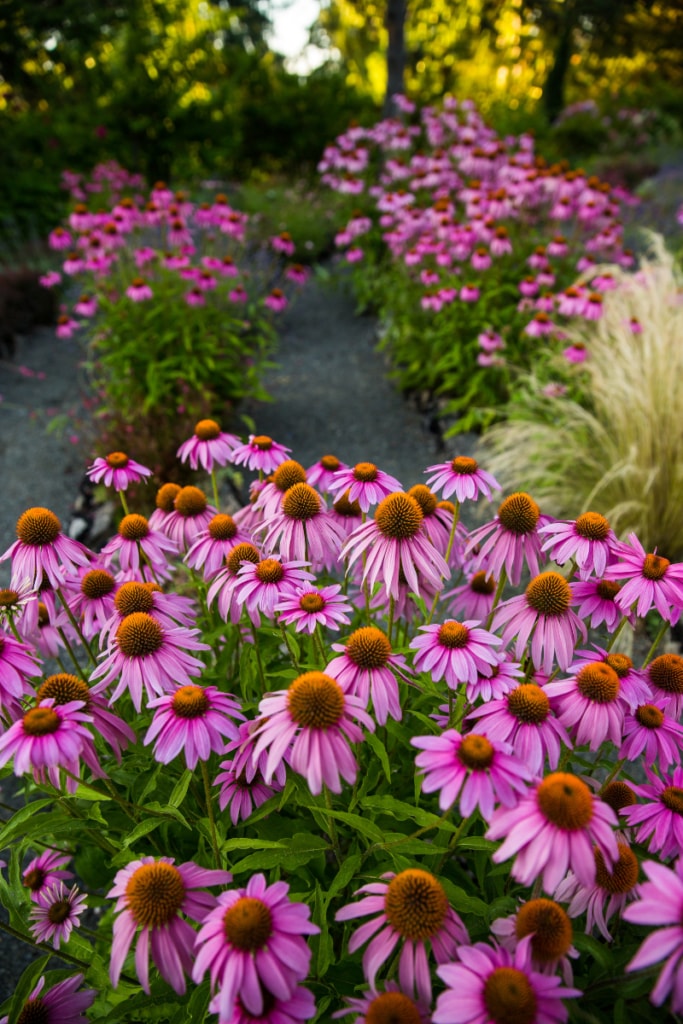
Eucalyptus
Many Eucalyptus species are used as antiseptics to treat common colds and respiratory infections because of their antibacterial and antioxidant qualities.10
Eucalyptus ointments are also used on the nose and chest to relieve congestion. Eucalyptus ointments used for topical application contain Eucalyptus oil, camphor, and menthol may lessen the symptoms of colds, helping recovery.11
Eucalyptus is an effective treatment for cold symptoms, especially for runny nose and cough.12
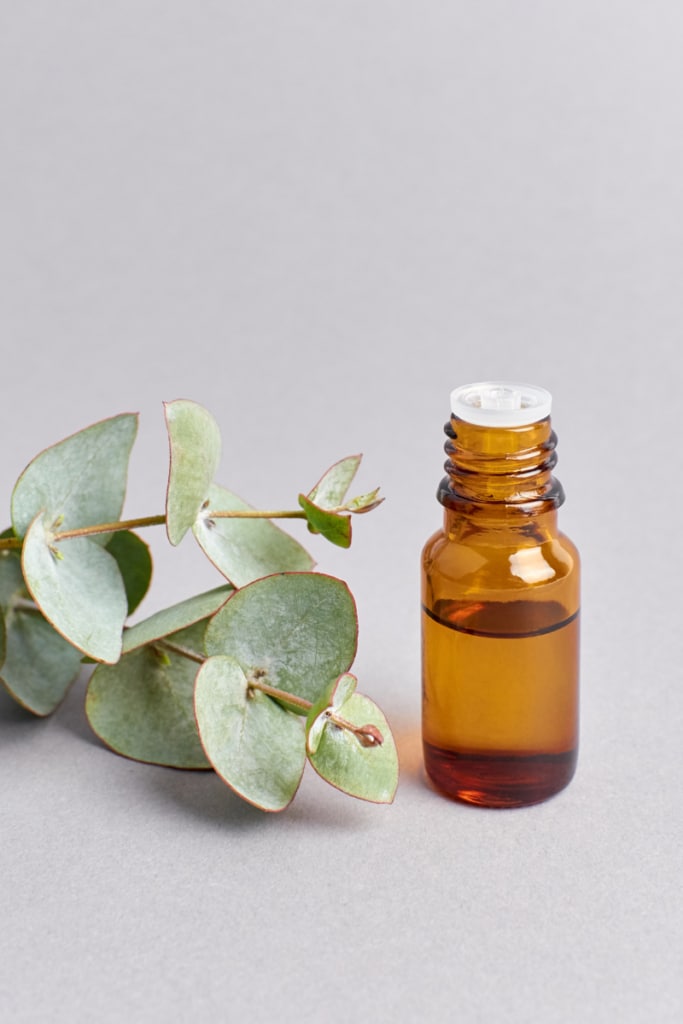
How to use eucalyptus essential oil to alleviate cold symptoms?
- Add 2 or 3 drops of eucalyptus essential oil to a bowl of extremely hot water.
- Cover the bowl and your head with a towel and breathe in the warm vapors for 10 minutes, twice or three times a day.
PRECAUTION
- Avoid giving cough drops containing eucalyptus to children under 6.
- Do not use eucalyptus oil products on the face or nose of a child under 2.
- Because eucalyptus may affect the liver, it may affect the hepatic metabolism of a wide range of drugs.
Ginger
Ginger (Zingiber officinale) is a plant originally from Southeast Asia. The subterranean portion of the stem known as the rhizome is commonly referred to as ginger root or just ginger. There are several applications for ginger, including juice, oil, dried powder, and fresh use. Several beneficial phenolic chemicals, including gingerols, are found in ginger.13
Gingerols reduce the risk of contracting viruses and bacteria.14,15 For these reasons, ginger has been used for many years to help fight off colds and the flu as well as to improve digestion and reduce nausea.16 Ginger’s antimicrobial properties may help soothe sore throats.17
Inhaled vapors of ginger essential oil have been shown to alleviate nausea.18
How to prepare ginger tea?
Simmer a few raw ginger root slices in hot water to make ginger tea. Adding honey to ginger can help soften its flavor and sharpness.
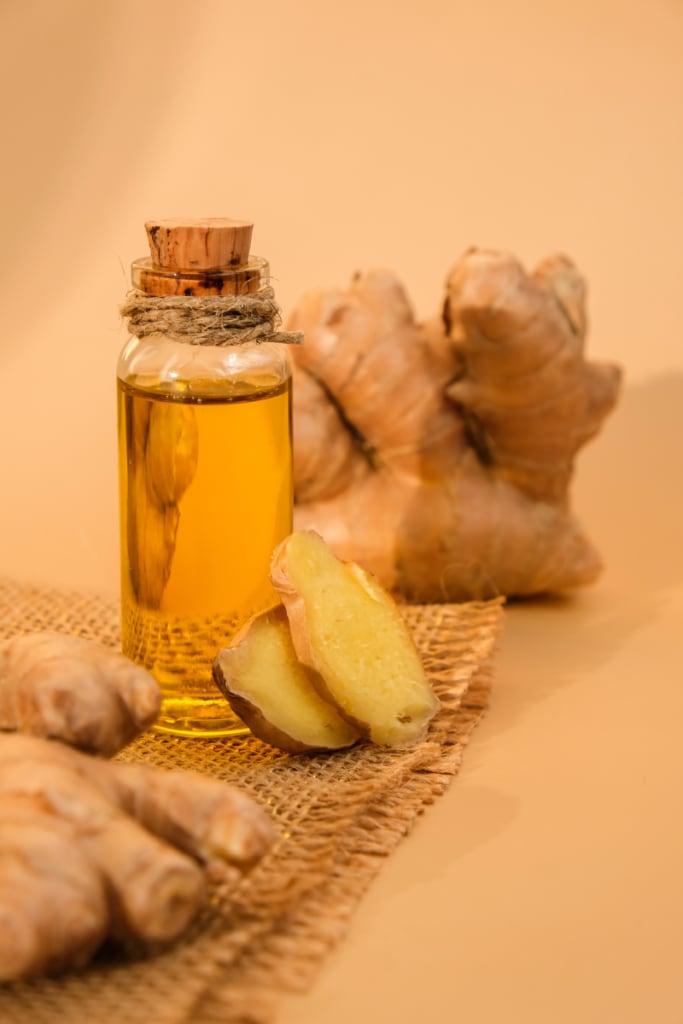
PRECAUTION
- Although ginger is generally regarded safe for most people, it is possible to have a ginger allergy.
- Ginger can induce stomach upset in some people. If this occurs, discontinue use.
Elderberry (Sambucus nigra)
Elderberry has long been used to prevent and cure respiratory infections.19
A few clinical trials demonstrate the health advantages of elderberry.20 Elderberry appears to be a viable intervention for lowering the severity and length of influenza and the common cold, with no major side effects.19
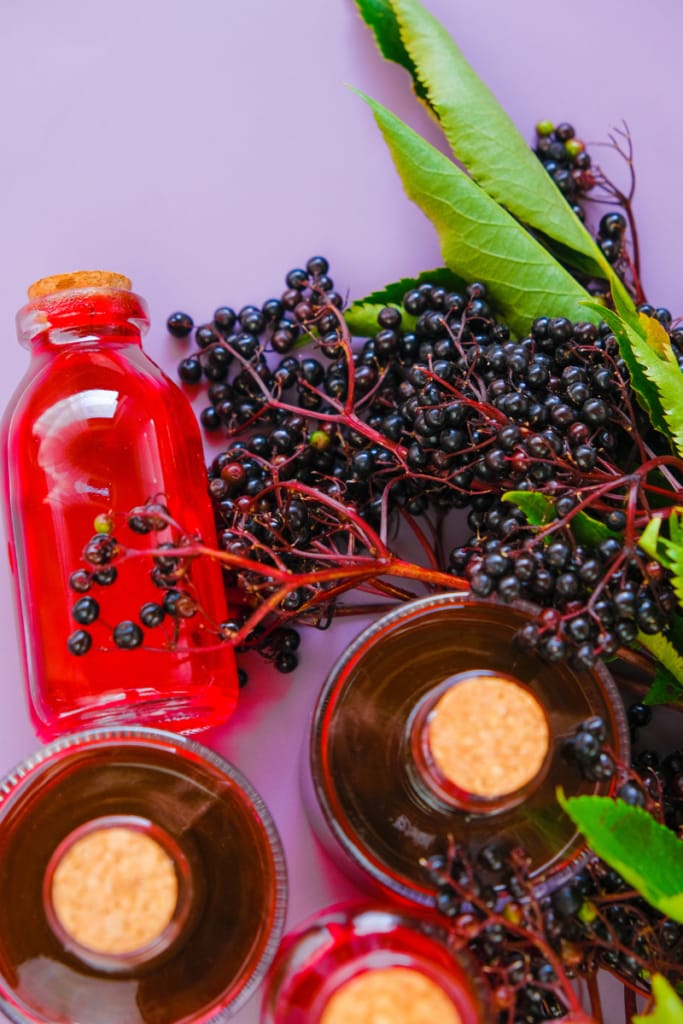
Garlic (Allium sativum)
Garlic (Allium sativum) has long been known to improve health and bring advantages to nearly all physiologic systems, including immunity. It contains antioxidants21 and allicin, a chemical with antibacterial and potential antiviral effects.22
Garlic supplements containing allicin may help prevent the onset of common cold infections.23
Including garlic in your diet may lessen the severity of cold symptoms and may even help you prevent being sick in the first place.
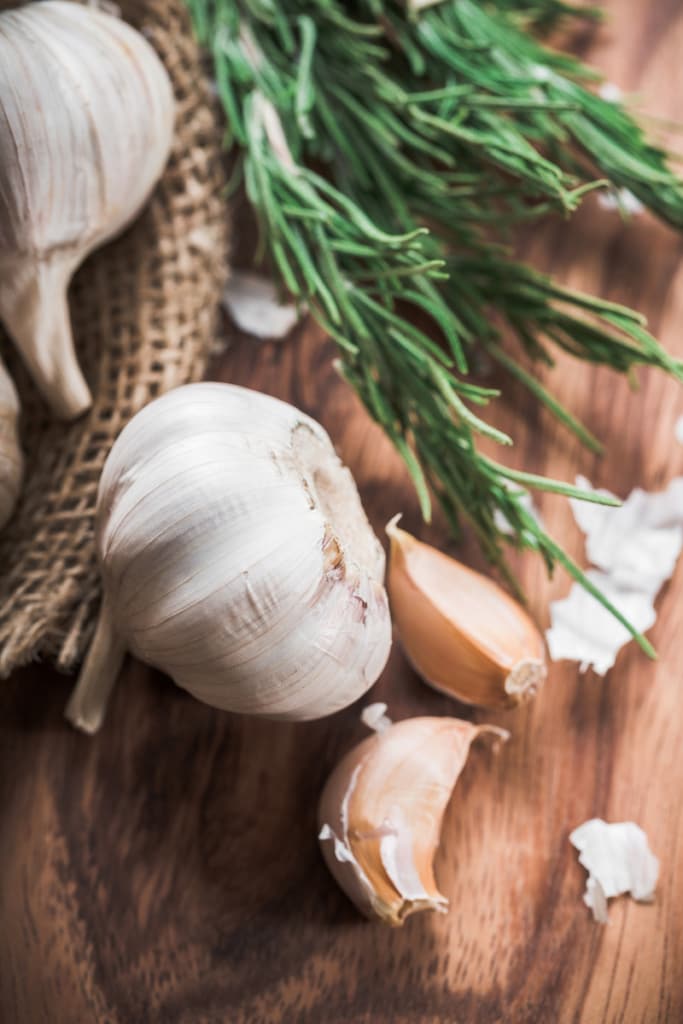
Peppermint (Mentha × piperita)
Peppermint (Mentha x piperita) is one of the most commonly used herbs to treat colds.24 Peppermint leaves have been shown to have antiviral and anti-inflammatory properties in cases of respiratory disease.25
Peppermint tea may relieve stomach flu symptoms. Inhaled vapors of peppermint essential oil may alleviate nausea.18 It may also be used to treat cough and cold symptoms.1
How to prepare peppermint tea?
- Add 2 cups of water to a small pot, and bring to a simmer.
- Add a handful of peppermint leaves, cover, and turn off the heat.
- Allow the leaves to steep for 15 minutes at least. You can go a bit longer if you want a stronger flavor.
- You can add one teaspoon of honey per cup when it is warm and a squeeze of lemon if desired.
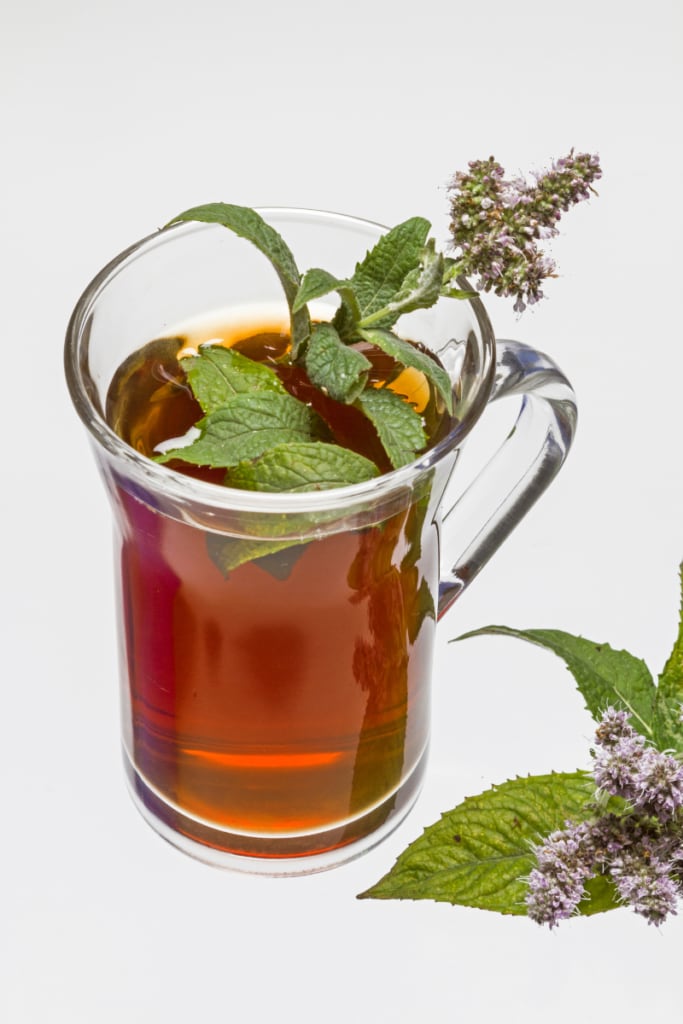
How to use peppermint essential oil to treat cold symptoms?
- Boil some water and add a few drops of peppermint essential oil. Breathe slowly in the steam from the water to relieve congestion and runny nose.
- Peppermint oil is excellent for relieving congestion and tension headaches when applied topically or inhaled.
- Make sure to dilute the oil before applying it topically on your skin. For every few drops of essential oil, you can add an ounce of carrier oil, such as coconut oil.
Thyme
Thyme (genus Thymus) is used to treat mouth, gastrointestinal, and urinary tract infections and respiratory illnesses (cough, bronchitis, asthma).1 Thymol is the best-studied essential oil ingredient of thyme and is effective against a variety of viruses. Thyme extracts are effective and safe in alleviating cold symptoms.26
How to prepare thyme tea?
- You can prepare your tea with fresh thyme leaves or ground thyme powder. Dried thyme can also be used.
- If you’re using fresh thyme, steep several sprigs in a cup of boiling water for about 10 minutes.
- Stir together 1 teaspoon of the powder and 1 cup of hot water. You may need to stir many times and your tea is ready in 10 minutes.
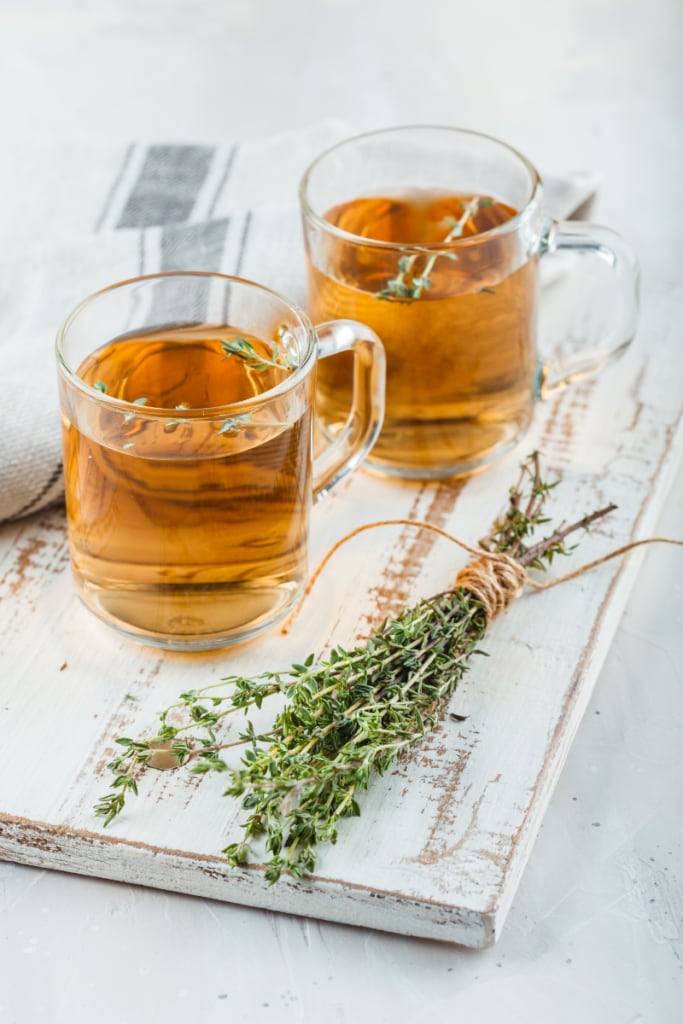
How to use thyme essential oil for cough?
- Bring a pot of water to a boil and then remove from the heat to cool.
- Pour 2 drops of essential thyme oil into the pot and immediately place your head over it.
- Cover your head with a towel to trap the steam.
Honey
Honey has a long history of use as an anti-inflammatory, anti-oxidant, and anti-bacterial agent.27 Honey in tea with lemon can help relieve sore throat pain. It may also serve as a cough suppressant.28
There are many claims stating that eucalyptus honey in particular helps with colds, flu, and respiratory diseases. However, there aren’t any sources supporting these claims. The effect of three honey varieties (eucalyptus honey, citrus honey, and labiatae honey) on nocturnal cough in children was investigated. There was a considerable improvement in all three honey product classes.29
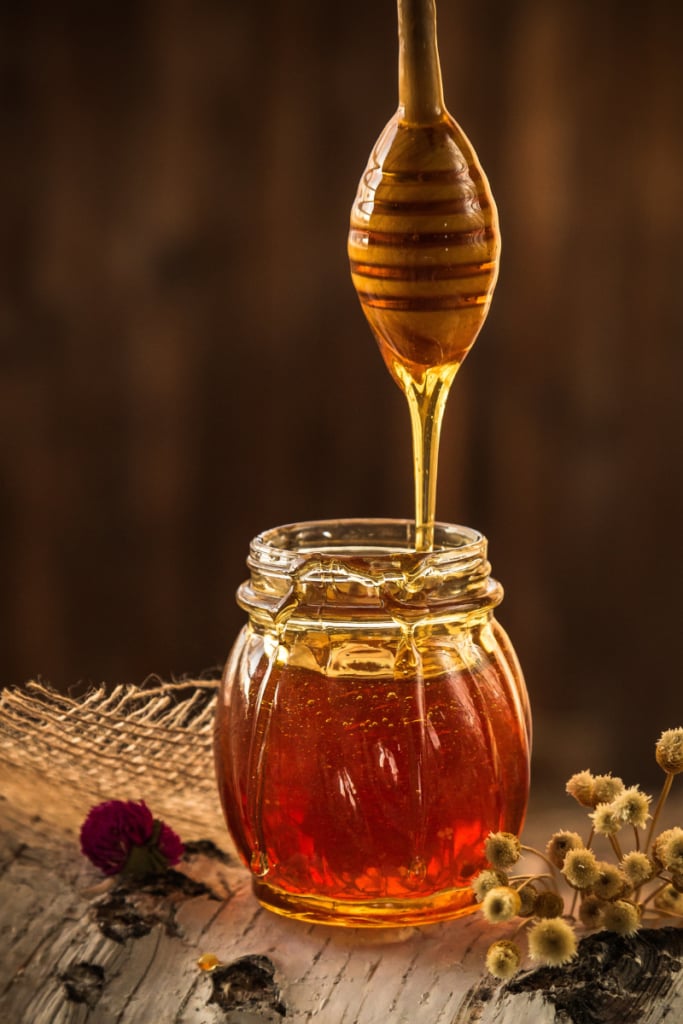
PRECAUTION
The immune system of newborns is incapable of combating spores. Honey should never be given to a child under the age of 12 months because it may contain botulinum spores.
Conclusion
- Echinacea may help with cold symptoms.
- Eucalyptus ointments may relieve congestion.
- Ginger may relieve sore throats.
- Ginger essential oil may help with nausea.
- Elderberry may decrease the severity and duration of influenza and the common cold.
- Garlic may reduce the intensity of cold symptoms and protect you from getting sick.
- Thyme may treat cough, bronchitis, and asthma.
- Thyme essential oil may relieve cold symptoms.
- Peppermint tea may relieve stomach flu symptoms.
- Peppermint essential oil may help with nausea, coughs, and colds.
- Herbal tea with honey and lemon may treat sore throat and coughs.
Vitamins and minerals
Vitamin C
Vitamin C is unlikely to prevent a cold, but there is some evidence that it may ease symptoms and shorten the duration of a cold.30
Citrus fruits, red bell peppers, broccoli, and other green leafy vegetables are excellent sources of vitamin C. When you’re sick, adding fresh lemon juice to warm tea with honey may help minimize phlegm. Drinking lemonade may also be beneficial.
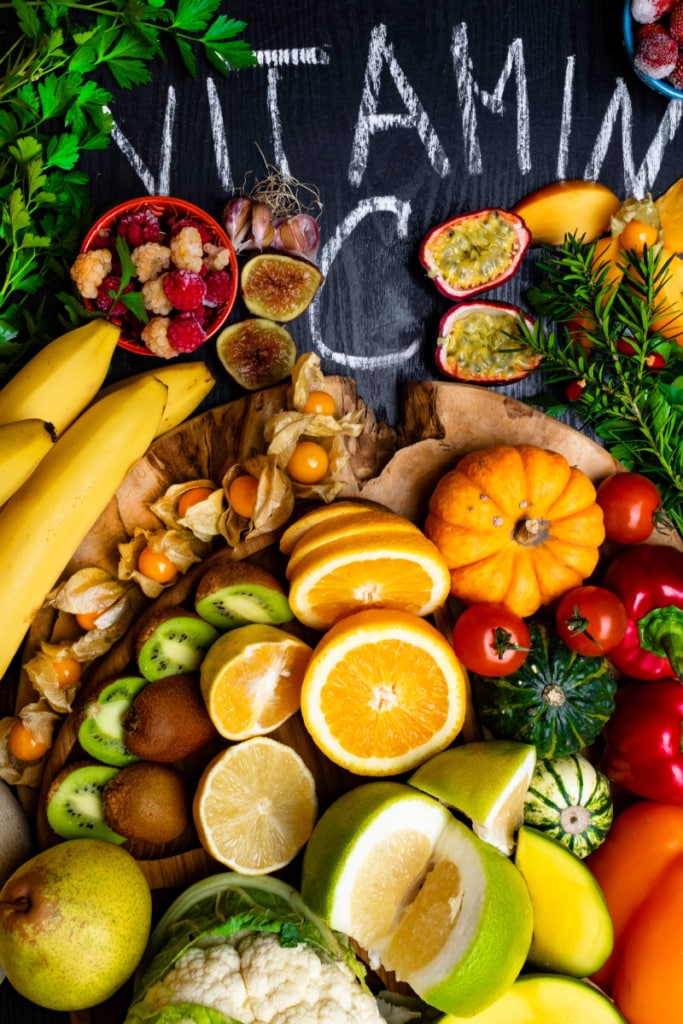
Vitamin D
Vitamin D may help prevent respiratory tract infections.31 People with low vitamin D levels are more likely to have respiratory tract disease.
Vitamin D assists the immune system in fighting respiratory infections such as the common cold.32

Zinc
Clinical data has shown the relevance of appropriate zinc levels in avoiding respiratory viral infections.33
Zinc has anti-viral characteristics and is vital in defending against viral infections of the respiratory system as well as controlling the immune response in the respiratory tract.33
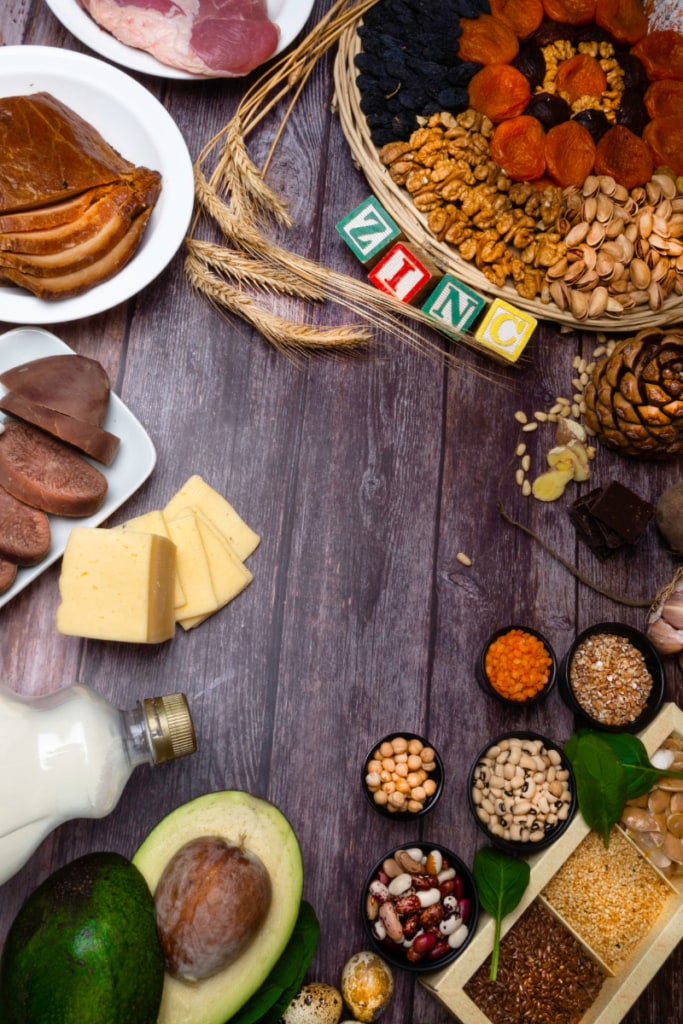
Conclusion
- Vitamin C may alleviate symptoms and lessen the duration of a cold.
- Vitamin D may prevent respiratory tract infections and boost the immune system’s response to respiratory infections.
- Zinc has anti-viral properties and is essential in fighting viral diseases of the respiratory system.
Home remedies
Saline water gargling and nasal irrigation
Nasal irrigation with normal saline (0.9%) and saltwater spray (2.3%) efficiently lowered upper respiratory infections in children.34 Gargling with salt water and nasal irrigation with hypertonic (1.5-3%) saline gave protection against the common cold.35
Saline irrigation may also aid with chronic inflammatory diseases such as rhinosinusitis.36 Hypertonic saline may assist break the transmission cycle by lowering the SARS-CoV-2 viral load in recovered patients.37
How to use salt water to treat a stuffy nose?
- In 1 cup of distilled, sterilized, or previously boiled water, combine 1/2 teaspoon salt and 1/4 teaspoon baking soda.
- Squirt water into the nostril with a bulb syringe. Close one nostril with light finger pressure while squirting the salt mixture into the other. Allow it to drain.
- Repeat two to three times more before moving on to the other nostril.
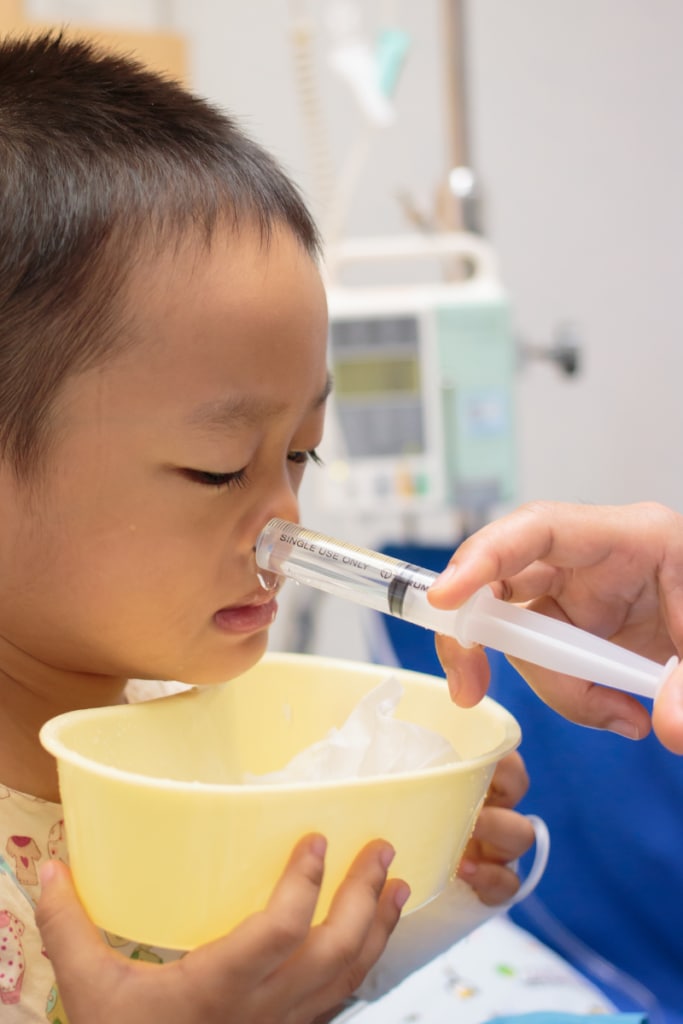
How to gargle with salt water?
- Gargle with half a teaspoon of salt dissolved in 1 cup of warm water. Use distilled, sterilized, or previously boiled water.

What should I eat?
For hydration:
- Soups and broths help you stay hydrated while consuming calories. Chicken soup contains nutrients that help your immune system. Try this chicken soup recipe.
- Fresh fruits are high in fluids as well as vitamins and minerals.
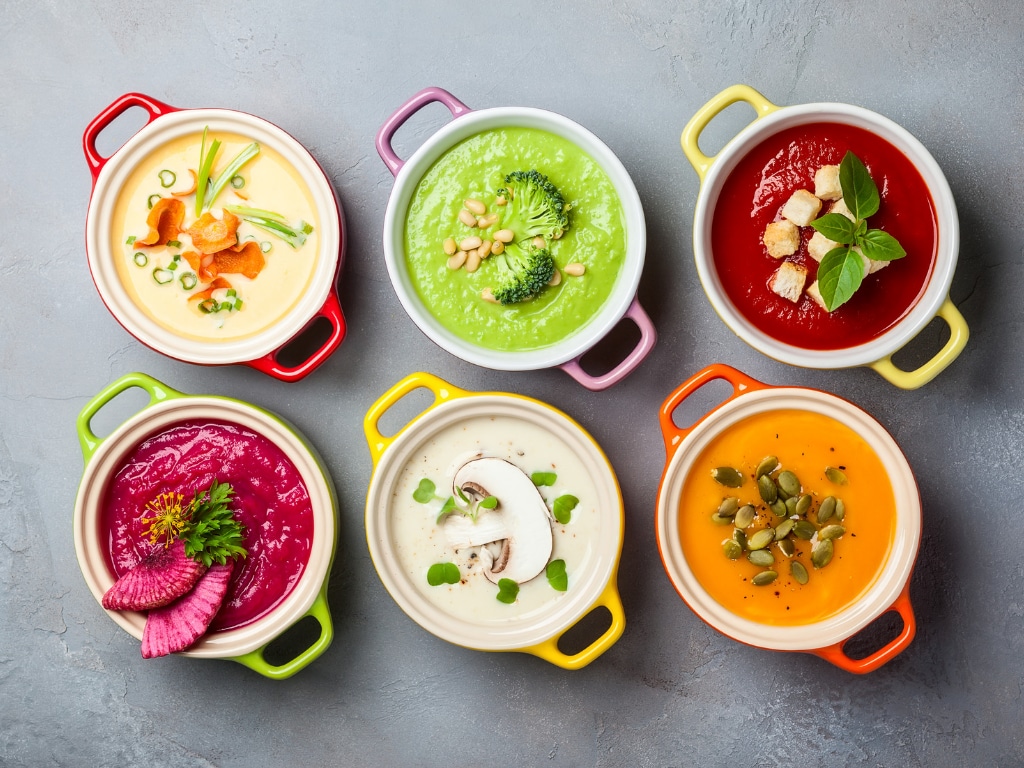
Check out these healthy soup recipes:
Cold-Fighting Chicken Soup Recipe
Pumpkin Soup Recipe – Quick, Easy, and Healing
Healthy and Delicious Beet Soup Recipe
For diarrhea:
- Yogurt contains probiotics, which aid in intestinal health and prevent diarrhea.
- Bananas and rice to relieve stomach distress and diarrhea
- Blueberries help with diarrhea and are high in natural aspirin, which may help with fevers, aches, and pains.
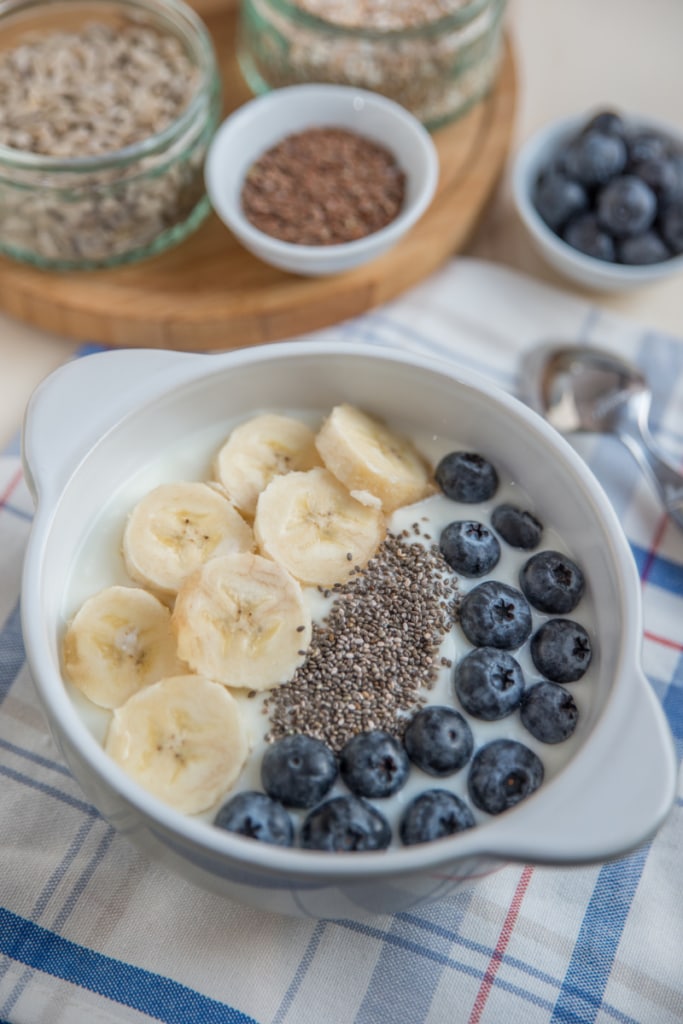
To support the immune system:
- Turmeric, ginger, and cinnamon. These spices have been proven to have anti-inflammatory properties.
- Zinc-rich foods include tofu, beans, almonds, wheat germ, and other plant-based foods.
- Foods high in vitamin C, such as bell peppers
- Foods high in vitamin D such as milk, eggs, and fatty fish.
To support the respiratory system:
- Chilli peppers may help open sinuses and break up mucus in the lungs.
- Mustard or horseradish may aid in the breakdown of mucus in the respiratory tract.
- Onions contain phytochemicals that may help the body to clear bronchitis and other infections.
What else should I do?
- Drink plenty of hot liquids including herbal tea to avoid dehydration and to help release mucus.
- Take a hot shower. A steamy shower’s warmth and humidity can moisturize your nasal passages and may help you relax.
- Staying warm and rested allows your body to focus its efforts on the immunological battle.
- Sleeping with an extra pillow under your head will help ease congested nasal passages.
When to see a doctor?
The majority of common cold symptoms are minor. The symptoms fade away on their own in about a week, though some may persist longer. It can take a few days for a sore throat or stuffy nose to go away, but it can take up to three weeks for a cough to go away completely.
People infected with COVID-19 may take longer to show symptoms and may be contagious for longer periods.
Seek medical attention if you have:
- Symptoms that aren’t improving or getting worse.
- Breathing difficulty.
- High fever lasting more than 3 days
- Fever that reappears after being absent for a while.
- Severe sinus pain, headache, or sore throat.
The majority of children with a common cold don’t require medical attention. If your child exhibits any of the following symptoms, get them checked out straight away:
- High persisting fever.
- Breathing difficulties or wheezing.
- Unusual levels of sleepiness or fussiness.
- Lack of desire to eat.
Final thoughts
- Several medicinal plants, for which scientific proof exists, are frequently used as medicines to alleviate the symptoms of upper respiratory infections.
- Boost your immune system as much as possible. It is your key element to fight the infection. Consume a nutritious healthy diet that is especially high in liquids and foods rich in zinc, vitamin C, and vitamin D.
Summary
Science-backed natural remedies used commonly for the prevention and treatment of natural colds.
| Natural remedy | Form used | Symptom(s) alleviated |
| Herbs and supplement | ||
| Echinacea | echinacea extracts, tinctures, pills, capsules, ointments | sore throat, cough, fever |
| Eucalyptus | ointments | runny nose, cough |
| Ginger | ginger tea ginger essential oil | sore throat nausea |
| Elderberry | supplements | lessen the severity and length of the infection |
| Garlic | supplements food | prevent infections, lessen the severity of the infection |
| Thyme | extracts herbal tea essential oil | alleviate the symptoms, cough, bronchitis, asthma |
| Peppermint | herbal tea essential oil | stomach flu, nausea, cough |
| Honey | raw with herbal tea | sore throat, cough |
| Vitamins and minerals | ||
| Vitamin C | supplements food | prevent infections, lessen the severity of the infection |
| Vitamin D | supplements food | prevent respiratory tract infections, fight the infections |
| Zinc | supplements food | boost the immune system, anti-viral effects |
| Home remedies | ||
| Nasal irrigation | normal saline (0.9%), saltwater spray (2.3%) hypertonic (1.5-3%) saline | eliminate viruses, relieve congestion, rhinosinusitis |
| Saline water gargling | salt water | eliminate viruses, relieve sore throat |
PRECAUTION
Before taking any plant, supplement, or vitamin, see your doctor. This is especially crucial if you are pregnant, have a medical condition, or take medications or supplements that may interact. Also, before providing them to your child, consult with your pediatrician.
NOTE: Vitamins, minerals, herbs, and other dietary supplements are not approved by the FDA for the treatment or prevention of disease. Purchase natural products from reliable suppliers.
References
1. Mammari, N. et al. Natural Products for the Prevention and Treatment of Common Cold and Viral Respiratory Infections. Pharmaceuticals (Basel) 16, (2023). http://dx.doi.org/10.3390/ph16050662
2. Heikkinen, T. & Järvinen, A. The common cold. Lancet (London, England) 361, 51-59, (2003). http://dx.doi.org/10.1016/s0140-6736(03)12162-9
3. Jaume, F., Valls-Mateus, M. & Mullol, J. Common Cold and Acute Rhinosinusitis: Up-to-Date Management in 2020. Current allergy and asthma reports 20, 28, (2020). http://dx.doi.org/10.1007/s11882-020-00917-5
4. Nakano, Y. et al. Survey of potentially inappropriate prescriptions for common cold symptoms in Japan: A cross-sectional study. PLoS One 17, e0265874, (2022). http://dx.doi.org/10.1371/journal.pone.0265874
5. Arroll, B. & Kenealy, T. Antibiotics for the common cold. The Cochrane database of systematic reviews, Cd000247, (2002). http://dx.doi.org/10.1002/14651858.Cd000247
6. Ciprandi, G. & Tosca, M. A. Non-pharmacological remedies for post-viral acute cough. Monaldi archives for chest disease = Archivio Monaldi per le malattie del torace 92, (2021). http://dx.doi.org/10.4081/monaldi.2021.1821
7. Weishaupt, R. et al. Safety and Dose-Dependent Effects of Echinacea for the Treatment of Acute Cold Episodes in Children: A Multicenter, Randomized, Open-Label Clinical Trial. Children (Basel, Switzerland) 7, (2020). http://dx.doi.org/10.3390/children7120292
8. Goel, V. et al. Efficacy of a standardized echinacea preparation (Echinilin) for the treatment of the common cold: a randomized, double-blind, placebo-controlled trial. Journal of clinical pharmacy and therapeutics 29, 75-83, (2004). http://dx.doi.org/10.1111/j.1365-2710.2003.00542.x
9. Schulten, B., Bulitta, M., Ballering-Brühl, B., Köster, U. & Schäfer, M. Efficacy of Echinacea purpurea in patients with a common cold. A placebo-controlled, randomised, double-blind clinical trial. Arzneimittel-Forschung 51, 563-568, (2001). http://dx.doi.org/10.1055/s-0031-1300080
10. Gullón, P. et al. Value-Added Compound Recovery from Invasive Forest for Biofunctional Applications: Eucalyptus Species as a Case Study. Molecules (Basel, Switzerland) 25, (2020). http://dx.doi.org/10.3390/molecules25184227
11. Smith, A. & Matthews, O. Aromatic ointments for the common cold: what does the science say? Drugs in context 11, (2022). http://dx.doi.org/10.7573/dic.2022-5-6
12. Her, L., Kanjanasilp, J., Chaiyakunapruk, N. & Sawangjit, R. Efficacy and Safety of Eucalyptus for Relieving Cough: A Systematic Review and Meta-Analysis of Randomized Controlled Trials. Journal of integrative and complementary medicine 28, 218-226, (2022). http://dx.doi.org/10.1089/jicm.2021.0226
13. Mao, Q. Q. et al. Bioactive Compounds and Bioactivities of Ginger (Zingiber officinale Roscoe). Foods (Basel, Switzerland) 8, (2019). http://dx.doi.org/10.3390/foods8060185
14. Park, M., Bae, J. & Lee, D. S. Antibacterial activity of [10]-gingerol and [12]-gingerol isolated from ginger rhizome against periodontal bacteria. Phytotherapy research : PTR 22, 1446-1449, (2008). http://dx.doi.org/10.1002/ptr.2473
15. Chang, J. S., Wang, K. C., Yeh, C. F., Shieh, D. E. & Chiang, L. C. Fresh ginger (Zingiber officinale) has anti-viral activity against human respiratory syncytial virus in human respiratory tract cell lines. Journal of ethnopharmacology 145, 146-151, (2013). http://dx.doi.org/10.1016/j.jep.2012.10.043
16. Rasheed, N. Ginger and its active constituents as therapeutic agents: Recent perspectives with molecular evidences. International journal of health sciences 14, 1-3, (2020).
17. Khodaie, L. & Sadeghpoor, O. Ginger from ancient times to the new outlook. Jundishapur journal of natural pharmaceutical products 10, e18402, (2015). http://dx.doi.org/10.17795/jjnpp-18402
18. Lua, P. L. & Zakaria, N. S. A brief review of current scientific evidence involving aromatherapy use for nausea and vomiting. Journal of alternative and complementary medicine (New York, N.Y.) 18, 534-540, (2012). http://dx.doi.org/10.1089/acm.2010.0862
19. Wieland, L. S. et al. Elderberry for prevention and treatment of viral respiratory illnesses: a systematic review. BMC complementary medicine and therapies 21, 112, (2021). http://dx.doi.org/10.1186/s12906-021-03283-5
20. Liu, D. et al. Elderberry (Sambucus nigra L.): Bioactive Compounds, Health Functions, and Applications. J Agric Food Chem 70, 4202-4220, (2022). http://dx.doi.org/10.1021/acs.jafc.2c00010
21. Percival, S. S. Aged Garlic Extract Modifies Human Immunity. The Journal of nutrition 146, 433s-436s, (2016). http://dx.doi.org/10.3945/jn.115.210427
22. Reiter, J., Hübbers, A. M., Albrecht, F., Leichert, L. I. O. & Slusarenko, A. J. Allicin, a natural antimicrobial defence substance from garlic, inhibits DNA gyrase activity in bacteria. International journal of medical microbiology : IJMM 310, 151359, (2020). http://dx.doi.org/10.1016/j.ijmm.2019.151359
23. Josling, P. Preventing the common cold with a garlic supplement: a double-blind, placebo-controlled survey. Advances in therapy 18, 189-193, (2001). http://dx.doi.org/10.1007/bf02850113
24. Mahendran, G. & Rahman, L. U. Ethnomedicinal, phytochemical and pharmacological updates on Peppermint (Mentha × piperita L.)-A review. Phytotherapy research : PTR 34, 2088-2139, (2020). http://dx.doi.org/10.1002/ptr.6664
25. Li, Y. et al. In vitro antiviral, anti-inflammatory, and antioxidant activities of the ethanol extract of Mentha piperita L. Food science and biotechnology 26, 1675-1683, (2017). http://dx.doi.org/10.1007/s10068-017-0217-9
26. Silva, A. S. et al. The evidence of health benefits and food applications of Thymus vulgaris L. 117, 218-227, (2021).
27. Al-Waili, N. S. et al. Effects of natural honey on polymicrobial culture of various human pathogens. 10, 246-250, (2014).
28. Oduwole, O., Meremikwu, M. M., Oyo-Ita, A. & Udoh, E. E. Honey for acute cough in children. The Cochrane database of systematic reviews, Cd007094, (2014). http://dx.doi.org/10.1002/14651858.CD007094.pub4
29. Cohen, H. A. et al. Effect of honey on nocturnal cough and sleep quality: a double-blind, randomized, placebo-controlled study. 130, 465-471, (2012).
30. NCCIH. <https://www.nccih.nih.gov/health/tips/tips-natural-products-for-the-flu-and-colds-what-does-the-science-say>
31. Charan, J., Goyal, J. P., Saxena, D. & Yadav, P. Vitamin D for prevention of respiratory tract infections: A systematic review and meta-analysis. Journal of pharmacology & pharmacotherapeutics 3, 300-303, (2012). http://dx.doi.org/10.4103/0976-500x.103685
32. Hughes, D. A. & Norton, R. Vitamin D and respiratory health. Clinical and experimental immunology 158, 20-25, (2009). http://dx.doi.org/10.1111/j.1365-2249.2009.04001.x
33. Sadeghsoltani, F. et al. Zinc and Respiratory Viral Infections: Important Trace Element in Anti-viral Response and Immune Regulation. Biological trace element research 200, 2556-2571, (2022). http://dx.doi.org/10.1007/s12011-021-02859-z
34. Köksal, T. et al. Comparison between the use of saline and seawater for nasal obstruction in children under 2 years of age with acute upper respiratory infection. Turkish journal of medical sciences 46, 1004-1013, (2016). http://dx.doi.org/10.3906/sag-1507-18
35. Ramalingam, S., Graham, C., Dove, J., Morrice, L. & Sheikh, A. A pilot, open labelled, randomised controlled trial of hypertonic saline nasal irrigation and gargling for the common cold. Scientific reports 9, 1015, (2019). http://dx.doi.org/10.1038/s41598-018-37703-3
36. Chong, L. Y. et al. Saline irrigation for chronic rhinosinusitis. The Cochrane database of systematic reviews 4, Cd011995, (2016). http://dx.doi.org/10.1002/14651858.CD011995.pub2
37. Panta, P., Chatti, K. & Andhavarapu, A. Do saline water gargling and nasal irrigation confer protection against COVID-19? Explore (New York, N.Y.) 17, 127-129, (2021). http://dx.doi.org/10.1016/j.explore.2020.09.010
Sign Up for Our Email List
Get our latest articles, healthy recipes, tips, and exclusive deals delivered straight to your inbox with our newsletter.
We won't send you spam. Unsubscribe at any time.
